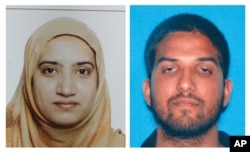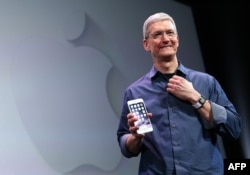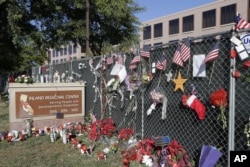The U.S. Justice Department has found a way to access the data on an iPhone 5C running Apple's iOS9 software using a method they did not publicly describe from an outside source they have not publicly identified.
The development ended the legal fight between the government and Apple in the case involving the phone used by the shooter in last year's attacks in San Bernardino, California. But far from over is the overall battle involving what the government gets to see about its citizens, and how.
California Congressman Darrell Issa, who has been a leading advocate of strong encryption, said it was preferable to have the case end without a wide-ranging court decision granting government access to devices, but that the underlying questions about personal information remain.
"There most certainly will be other cases and, as we debate these issues as a nation, we must remain critical of government attempts to take advantage of sensitive situations to amass greater government power and control which are almost always at the expense of our personal freedom and privacy," Issa said.
Apple's lawyers had said they hoped the government would share any method that successfully got them into the phone used by gunman Syed Farook, but after a federal judge agreed to withdraw her order against Apple in the case Monday, that is unlikely to happen.
A more likely outcome is that the government will take what it has learned and try to apply the method to crack other devices in cases where Apple has objected to helping break its own encryption.
There are at least 15 cases in federal courts New York, Illinois, California, Massachusetts and Ohio, according to a list Apple filed in a letter in the San Bernardino case. The Justice Department's response to the document did not request any redactions from the list, suggesting it is accurate.
Most of the devices are iPhones, ranging from the iPhone 3 to the newest iPhone 6 Plus, and run on iOS4 to iOS9. Half of the cases involve devices running iOS7 or earlier, which is important because Apple boosted its security with the release of iOS8. One key addition, according to the company's court filing, was "a feature that prevents anyone without the device's passcode from accessing the device's encrypted data."
That was an issue in the San Bernardino case. Investigators did not know Farook's password, and an additional security feature would have erased the data with 10 incorrect guesses.
Because the government found a way into the more secure iOS9, it could very well now have a way to get into the earlier versions of the software as well.
Apple and other technology companies have put a greater emphasis on data security in the past few years just as the Justice Department has argued that increased encryption is hampering efforts to investigate crimes.
It is an arms race of sorts. Apple puts out a new version of its operating system about once a year, including the release of iOS9 last September. By October, Apple said 90 percent of its devices were still running the previous version, but adoption has rapidly spread to the point that 80 percent of Apple users are now on iOS9.
That means that if Apple figures out how the government broke into the San Bernardino iPhone and how to block it, the government would quickly find itself once again blocked in future cases. The battle was clear in statements by both the company and the government on Monday.
"It remains a priority for the government to ensure that law enforcement can obtain crucial digital information to protect national security and public safety, either with cooperation from relevant parties, or through the court system when cooperation fails," said Department of Justice spokeswoman Melanie Newman.
Apple said it will continue to assist law enforcement as well as continue to upgrade its security measures against more sophisticated attacks.
"Apple believes deeply that people in the United States and around the world deserve data protection, security and privacy. Sacrificing one for the other only puts people and countries at risk," a statement from the company read.
Alex Abdo, a staff attorney at the American Civil Liberties Union, said Monday the San Bernardino case was "never about just one phone," but instead an unprecedented move by the government that threatens the privacy and security of everyone.
"Unfortunately, this news appears to be just a delay of an inevitable fight over whether the FBI can force Apple to undermine the security of its own products."
House Homeland Security Committee Chairman Michael McCaul said settling one case does not resolve the debate over national security versus personal information security, and that now is the time to determine how the country will address digital security. He has proposed, along with Senator Mark Warner, a commission to "examine the challenges of security in the digital age so that we are not inevitably playing catch-up after each new lawsuit."
Read the Justice Department's filing in the case and the court's response.







